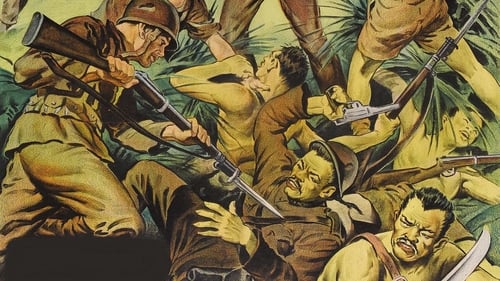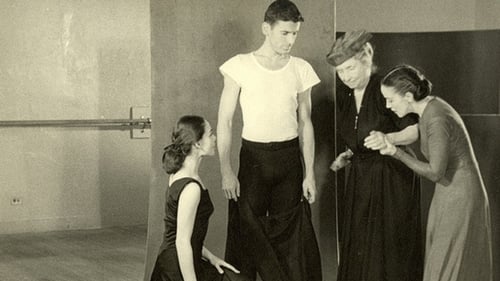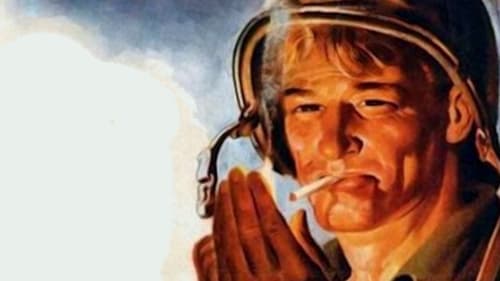The Face of Lincoln (1956)
Genre :
Runtime : 20M
Director : Edward Freed
Synopsis
Head of the sculpture dpeartment at USC when this film was made (by USC), Merrell Gage was a lifelong expert on Abraham Lincoln. This short was a lecture often given by Gage, using wet clay to depict the on-going changes to Abe's face over the years as Abe altered his hairstyle, grew a beard, and showed the effects of aging. Shown on TV many times, a fascinating look at one of history's important statesmen.

Twenty-two prominent American women discuss their activism for nuclear disarmament and their motivations in seeking the end of the arms race.

In the heart of Tel Aviv, there is an exceptional school where children from forty-eight different countries and diverse backgrounds come together to learn. Many of the students arrive at Bialik-Rogozin School fleeing poverty, political adversity and even genocide. Here, no child is a stranger. The film follows several students' struggle to acclimate to life in a new land while slowly opening up to share their stories of hardship and tragedy.

Documentary short film depicting the harrowing battle between the U.S. Marines and the Japanese for control of the Pacific island of Tarawa.

Music by Prudence tells a self-empowering story of one young woman's struggle who, together with her band, overcomes seemingly insurmountable odds and, in her own voice conveys to the world that disability does not mean inability. In addition to its sheer emotional punch, Music by Prudence has become the cornerstone of an advocacy campaign and has been embraced by the UN, Human Rights Watch and the disability community as an unprecedented portrayal advocating for the rights of persons with disabilities. Prudences poignant, inspiring and irreverent message of hope has received an amazing response from press and audiences all across North America, and has won the Academy Award for Best Documentary Short and several other awards as it continues drawing in more audiences.

Narrated by actress Katharine Cornell and filmed in black and white, it spends the first 24 minutes introducing viewers, through newsreels, interviews, and old photographs, to the story of the deaf and blind disabled-rights pioneer. News footage shows her international appearances and visits with heads of state, including President Eisenhower allowing her to feel his face. The second half takes a day-in-the-(exceptional)-life approach to Keller's existence circa 1955. Made just 13 years before her death, Keller's famed tutor-translator-friend Anne Sullivan had already died, leaving her live-in replacement, Polly Thomson, to share the film's focus. From the time Keller takes her morning walk along the 1,000-foot handrail around her yard through her workday to her nightly reading of her Braille Bible, her serene acceptance of her life will amaze and inspire.

Board and Care is a 1979 American short film directed by Ron Ellis and starring Richard Goss and Laura Jean Ellis. It won an Oscar at the 52nd Academy Awards in 1980 for Best Short Subject.

Produced by Walt Disney as part of the "True-Life Adventures" series of nature documentaries (1948–60). The film depicts a young male beaver who must defend his new family against hungry predators, mischievous river otters, and the ever-impending threat of winter.

Filmmakers Sue Marx and Pamela Conn document the romance between Sue's father Louis Gothelf and Reva Shwayder, each in their mid-80s. Both artists and residents of the Detroit suburbs, they met on a group tour of England after being widowed, and quickly formed a strong connection over shared interests. The two discuss concerns over living together without being married; Louis also talks about his caring for his first wife during her ten-year struggle with Alzheimer's disease, while Reva talks about the deaths of two sons several years after her husband's death.

Oscar Winning documentary short about Charlie Clements, a Vietnam War pilot who was convinced by his experiences in the war that he should become a doctor working behind enemy lines.

On May 8th, 1945, writer, director Norman Corwin broadcast ON A NOTE OF TRIUMPH, an unforgettable homage to the end of war in Europe. This film shines a light on a lost work of genius, and examines it's haunting resonance to today's current events.

A hilarious and affectionate look at the path to stardom inside the competitive world of opera. Filmmakers Allie Light and Irving Saraf relegate the divas to the background and focus on a limelight-craving group of "choristers" -- the seldom-noticed singers who stand behind the soloists portraying peasants, soldiers and slaves.

Soviet documentary about the defeat of the Nazis near Moscow. Warning - graphic images. Edward G. Robinson narrates the English language version.

Angel and Big Joe is a 1975 American short drama film directed by Bert Salzman and starring Paul Sorvino and Dadi Pinero. It tells the story of a friendship between a migrant boy and an electrician who has greater ambitions. The film won an Oscar at the 48th Academy Awards in 1976 for Best Short Subject.

Australian pediatrician Helen Caldicott delivers a lecture on the potential medical and societal consequences of a nuclear war, and advocates for nuclear disarmament. The film includes newsreel records of the beginnings of the arms race and the bombings of Hiroshima and Nagasaki, as well as film records showing the Japanese who were severely scarred and burned in the bombings.

A look at some of the last stone carvers working in the United States, those completing the sculptures adorning the Washington National Cathedral. They discuss their craft and the cultural forces which helped define it, as well as the fading use of stone ornamentation in architecture and the history of stone carving, and they tour the cathedral to point out the history behind some of the work.

Toward Independence is a 1948 American short documentary film about the rehabilitation of individuals with spinal cord injuries.

Grandad of Races is a 1950 American short documentary film about the Palio di Siena held in the Piazza del Campo in Siena, directed by André de la Varre. It won an Oscar at the 23rd Academy Awards in 1951 for Best Short Subject.

This biographical docudrama traces the life of Dr. Albert Schweitzer, from his birth in Alsace, up to the age of 30 when he made the decision to go to French Equatorial Africa and build his jungle hospital. The latter half of the film encompasses a full day in the hospital-village, following the octogenarian Samaritan in his daily rounds.

Oscar Winning short documentary

A documentary account of the allied invasion of Europe during World War II compiled from the footage shot by nearly 1400 cameramen. It opens as the assembled allied forces plan and train for the D-Day invasion at bases in Great Britain and covers all the major events of the war in Europe from the Normandy landings to the fall of Berlin.









